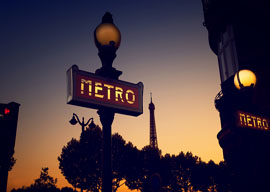
January 07, 2017

Source: Bigstock
At the Gare du Nord one would not know what country one was in, except that such a mélange could not occur anywhere but in a few major Western cities. There are more French in Kensington (London) than in the Gare du Nord. This is not true cosmopolitanism, it is the reduction of everyone to the lowest common denominator, namely something akin to American ghetto culture. One’s sense of security is not heightened by observing how many of the young men jump the ticket barriers, quite openly and with a sense of entitlement on their faces, secure in the knowledge that no one will say, let alone do, anything about it. One is not surprised occasionally to observe a crime committed there; one is surprised that there are not many more.
But most of the people at the Gare du Nord are on their way either to or from work, mostly menial, one suspects, ill-paid and exhausting. They will go home to crime-ridden workers” barracks, the Brave New World of 1970s architects. We, the bourgeois, are dependent on them for many services that we take for granted; were it not for them, we should, among other things, have to look after our elderly ourselves. I suspect that the immigrants are what stand between our elderly and compulsory euthanasia, de facto or de jure. According to M. Lenglet, 30 percent of inheritances worth having are inherited by people themselves over the age of 70. If in addition to this unconscionable wait, people had to look after the elderly themselves, I think survival rates might be low.
M. Lenglet’s France is a volatile mixture of privileged and highly educated bourgeois, poorly paid workers in precarious conditions, and an ever-increasing number of drones who are either retired or unemployed. Their interests do not coincide. France sounds rather like other countries I could name.